It's no secret that when furnaces are producing heat, they can get hot. But should a furnace be hot to the touch? Let's take a look to see if this is something you should be worried about.
Depending on your type of furnace, being hot to the touch is normal. It's not uncommon for a gas or high-efficiency furnace to get as hot as 140-170 degrees Fahrenheit. However, there are some warning signs that your furnace is overheating, such as:
- Burning smell
- Hot vents
- Inconsistent cycling
- Odd noises
Addressing an overheating furnace as soon as possible is important to prevent further damage to your furnace or home. In this article, we will discuss the normal operating temperatures of a furnace and warning signs that indicate an overheating furnace. In addition, we will answer other frequently asked questions about furnaces, so read on!
Is It Normal For A Furnace To Feel Hot?
When winter hits, it's time to turn on the furnace to stay warm. But have you ever noticed that your furnace feels hot to the touch? Depending on your type of furnace, this can be a normal operating temperature.
For example, a gas furnace can operate at temperatures of 140-170 degrees Fahrenheit. For high-efficiency furnaces, the range is a bit lower at 110-140 degrees Fahrenheit. These elevated temperatures are necessary to properly heat your home.
As a result, the metal surfaces of your furnace will be hot to the touch. You may also notice that the furnace is hotter in certain areas, such as near the burners. This is because the heat produced by the furnace is concentrated in these areas.
In general, as long as your furnace is operating within the normal temperature range, you don't need to worry about it being hot to the touch. However, there are some warning signs that indicate an overheating furnace, which we will discuss next.
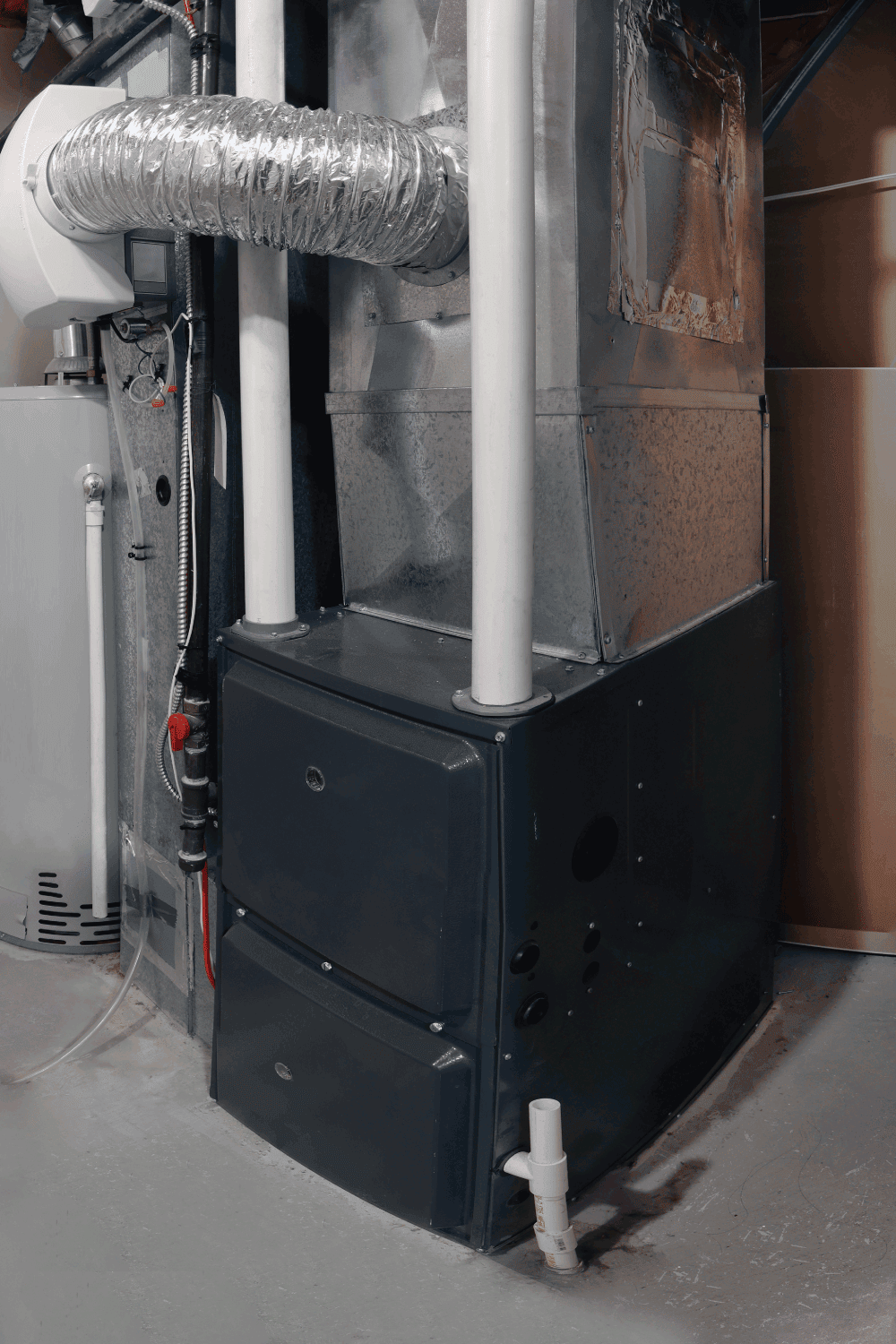
Warning Signs Of An Overheating Furnace
Although it's normal for a furnace to be hot to the touch, there are some warning signs that indicate an overheating furnace. If you notice any of these signs, you will need to address the issue as soon as possible to prevent irreversible damage to your furnace or home.
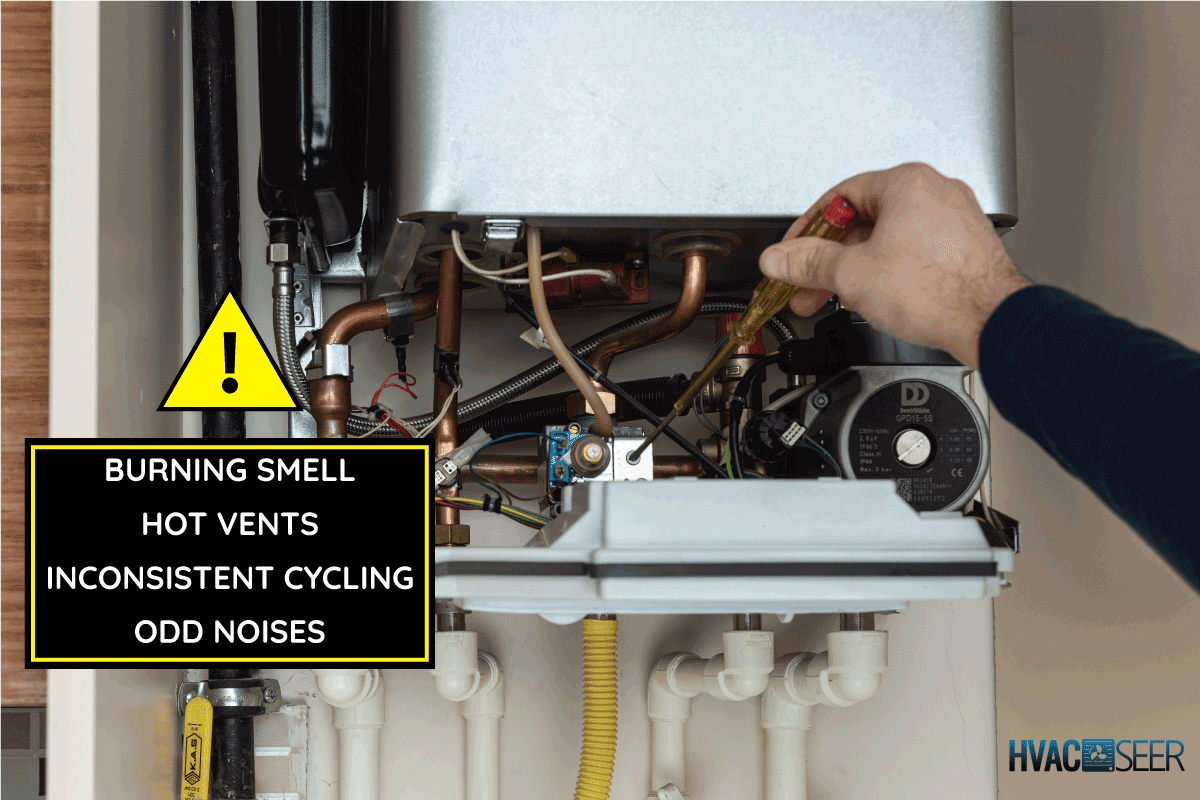
Burning Smell
Sometimes a burning smell from a furnace is due to dust burning off the heat exchanger. This is a normal occurrence when you first turn on your furnace for the season, and it should go away after a few minutes.
However, if this smell persists, it is a telltale sign your furnace is overheating.
Hot Vents
Check your furnace vents to see if they are hot to the touch. If they are, this is a sign that your furnace is not properly venting the heat it's producing. As a result, the heat stays in your furnace, causing it to overheat.
Inconsistent Cycling
If your furnace is cycling on and off more frequently than usual, this could be a sign that it's overheating. Furnaces are designed for cycling based on the temperature of your home.
So, if the furnace is cycling more frequently than normal, it's likely because it can't keep up with the demand for heat, causing it to overheat.
Odd Noises
If strange noises are coming from your furnace, such as humming, grinding, or banging, this is a sign of an issue. These sounds can indicate that your furnace is overworked and may be on the verge of overheating.
In the case of an emergency shutoff, your furnace may also make a loud pop or bang. This is due to a sudden drop in air pressure and is a sign that your furnace is overheating.
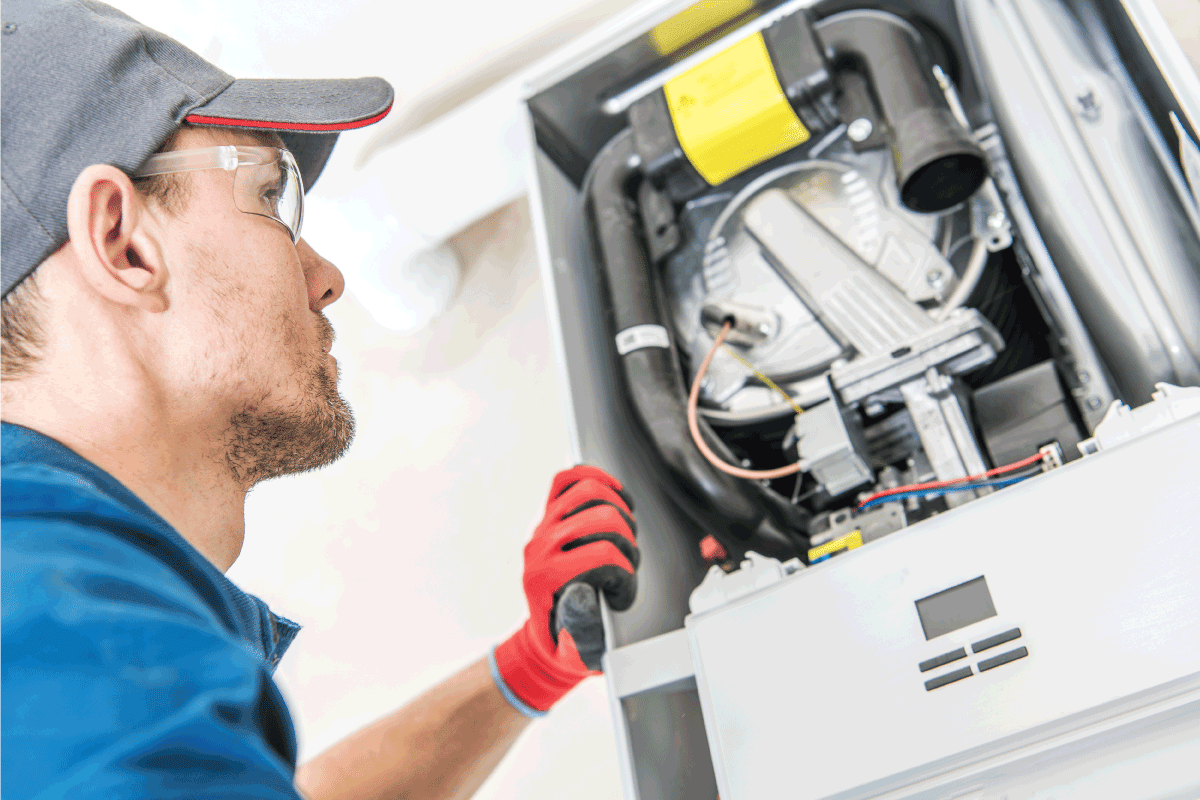
Why Is My Furnace Overheating?
Now that we have discussed the warning signs as well as the normal operating temperatures of a furnace, you may be wondering why your furnace is overheating. There are several reasons this could happen, such as:
Dirty Air Filter
Over time, your furnace's air filter will become clogged with dirt and debris. This limits the airflow to your furnace, causing it to overwork itself and overheat. For this reason, it's important to check and clean your air filter on a regular basis.
Typically, you will want to replace your furnace air filter every 1-3 months. However, this will vary depending on the type of filter you have as well as the environment in which you live.
If you have a reusable air filter, you still need to clean it on a regular basis. The frequency will depend on the manufacturer's recommendations as well as the environment in which you live.
Blocked Vents
Dust and pet hair can accumulate around your furnace vents, blocking them. This will cause your furnace to work harder as it tries to push the air through the vents. In turn, this will cause your furnace to overheat.
To prevent this from happening, you will want to vacuum around your vents on a regular basis. You may also need to remove the vents and clean them with soapy water if they are particularly dirty.
You should also check that your air vents aren't blocked by furniture. If multiple vents are blocked, this can cause a buildup of pressure in your furnace, leading to overheating.
Lastly, if you closed air vents in multiple rooms, open them up. This will allow your furnace to evenly distribute the heat, preventing it from overworking itself.
Dirty Blower Motor
The blower motor's job is to circulate the air through your furnace. Over time, it will become coated in dust and dirt. This will cause it to work harder, overheat, and eventually fail.
To prevent this from happening, you will want to clean your blower motor on a regular basis. You can do this by vacuuming it with a brush attachment.
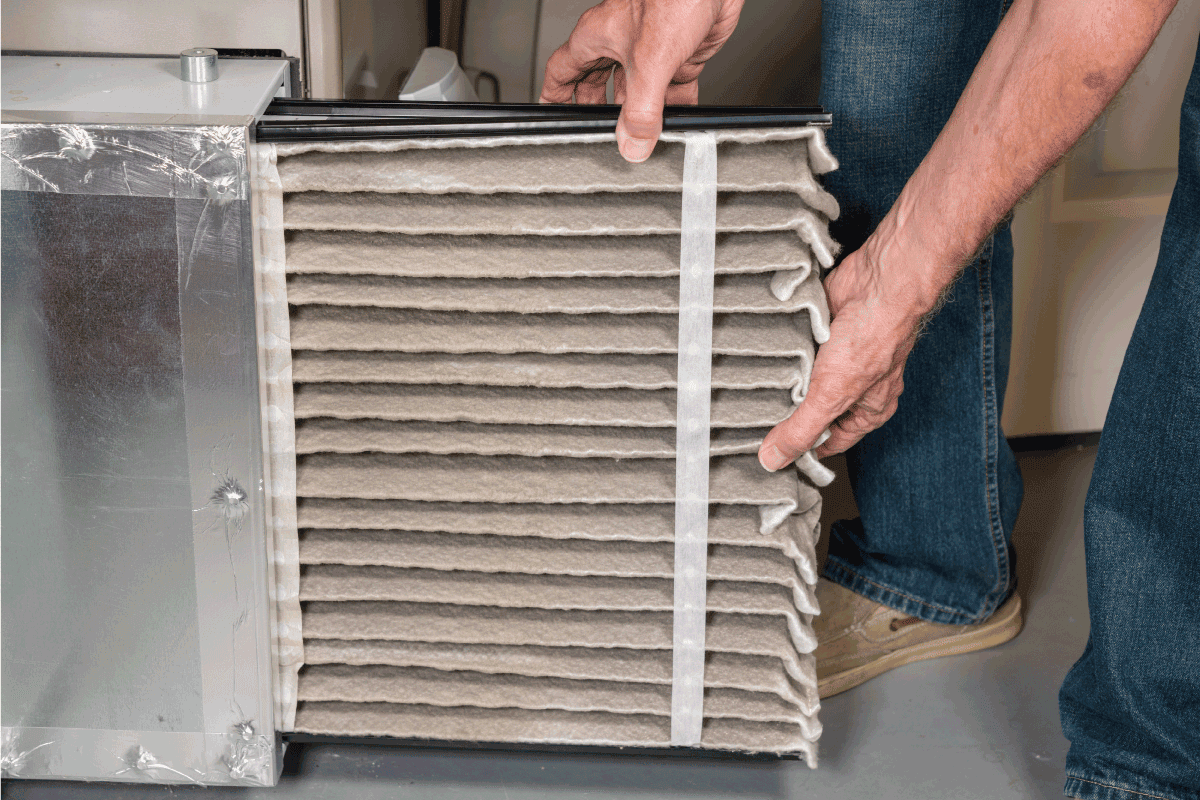
Wrong Size Furnace
If your furnace is too small or too big for your home, it will have to work harder to heat your home, causing it to overheat.
If you're not sure what size furnace you need, you can consult a professional. They will be able to help you choose the right size furnace for your home.
Internal Part Failure
If you have cleared the air filter, checked the vents, and cleaned the blower motor, but your furnace is still overheating, it's likely due to an internal part failure.
This could be a bad motor, wiring issues, or a number of other problems. It can be tough to diagnose what part is causing the issue on your own.
In this case, you will need to consult a professional for help. They will be able to diagnose the problem and make the necessary repairs.
Old Furnace
It's also possible the overheating issue is due to your furnace itself. Over time, furnaces will wear out and become less effective. If your furnace is more than 15 years old, it may be time for a replacement.
A professional can help you determine if your furnace needs to be replaced or not. They will take a number of factors into account, such as the age of your furnace, the severity of the overheating issue, and how often it happens.
While a new furnace isn't an inexpensive investment, it will be much more efficient than an old one. This will help you save money in the long run on your energy bills.
How Often Should You Have Your Furnace Inspected?
Not only will getting your furnace inspected on a regular basis help to prevent it from overheating, but it will also help to catch any problems early on. This can save you a lot of money in the long run, as small problems are much easier and less expensive to fix than big ones.
Typically, you will want to have your furnace inspected once a year. However, this may need to be done more or less often depending on the age of your furnace and how often you use it.
If you're not sure how often you should have your furnace inspected, you can consult a professional. They will be able to advise you on the best course of action.
Nonetheless, if you can't remember the last time you had your furnace inspected, it's probably time to do so.
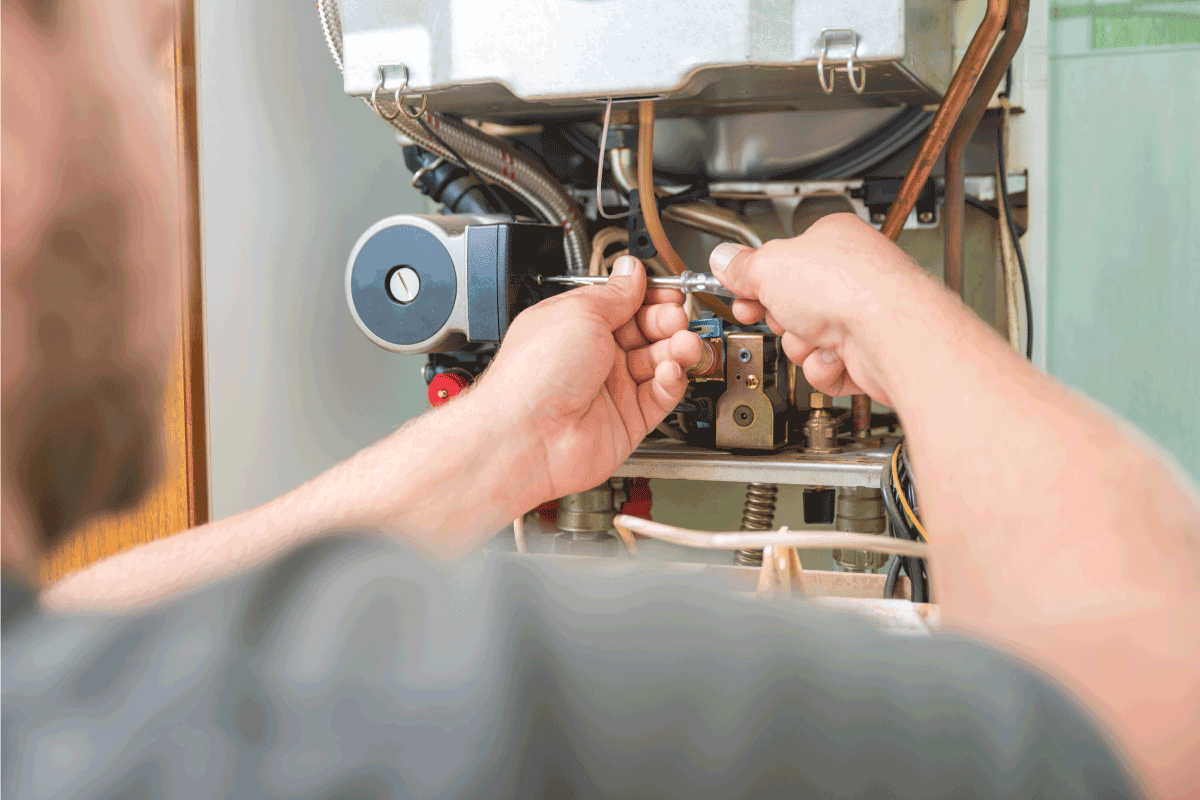
Final Thoughts
It's important to keep an eye on your furnace and make sure it isn't overheating. Not only can this cause damage to your furnace, but it can also be a fire hazard. By following the tips above, your furnace will be less likely to overheat.
Made it to the end? Here are other articles you might find helpful:
